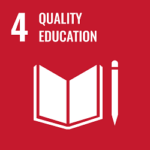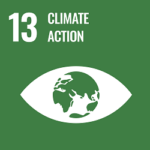Some reflections from our October LUNSHE

The October LUNSHE session centred on setting academic "New Year’s resolutions" aimed at empowering educators to inspire the next generation of change-makers.
Talk 1: Alex Holmes
Alex Holmes kicked off the session with a short talk on how education for sustainable development can create change-makers. She introduced the concept of “glocal” challenges—global issues addressed on a local level—and highlighted student-led projects tackling real-world problems. These projects addressed issues such as meningitis at the University of Leeds, dementia risk factors, and rising vaping rates among 18-21-year-olds in West Yorkshire. Her analysis showed that these initiatives were feasible, impactful, and evidence-based, producing actionable recommendations for a range of stakeholders.
Talk 2: Harriet Thew
Harriet Thew then discussed climate justice education, focusing on a new 30-credit optional Climate Justice module offered as part of the MSc in Climate Futures: Science, Society, and Politics. Her talk explored the connections between teaching methods, emotions, and personal agency. Drawing from feedback from the 14 students enrolled, Harriet shared how the course deepened students' understanding of environmental and climate justice and influenced their self-perception. Notably, students reported experiencing a "constructive rage"—a productive mix of anger and hope—that helped them channel negative emotions into meaningful action. Harriet wrapped up by sharing her own New Year’s resolutions, which include being more attentive to both staff and student emotions, incorporating Indigenous and Global South knowledge traditions, and fostering more creative, collaborative outputs.
Group Discussion
Attendees then broke into small groups to discuss how they could apply insights from Alex and Harriet's talks to their own work, exploring ways to embed sustainability into their practices. Many felt that the session’s themes resonated deeply with their goals, though they also noted the difficulty of integrating sustainability into existing curricula. Several participants expressed frustration over lacking formal control over modules, which limits their ability to introduce innovative changes. Engagement was a central focus for both groups, highlighting its importance in fostering a sense of belonging and accountability among students. The group discussed the importance of modelling effective group work, noting that while some disciplines have a culture of scepticism—where group work is often perceived as leading to unfair workload, others embrace collaboration more readily.
United Nations Sustainable Development Goals
We use the United Nations Sustainable Development Goals (SDGs) as a framework to guide our activity. Our work on Sustainable Curriculum is linked to all of the SDGs, including:
- Goal 4: Quality Education
- Goal 13: Climate Action
Find out more about our impact on the SDGs.


